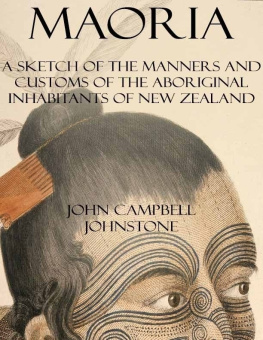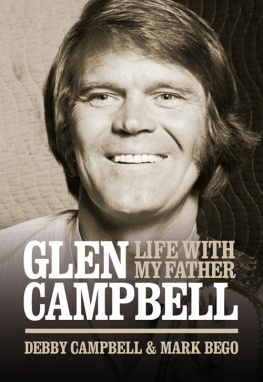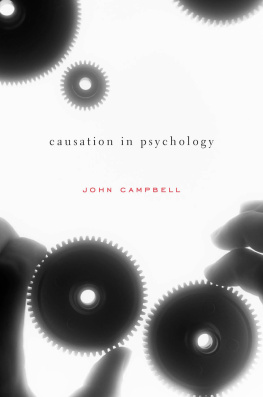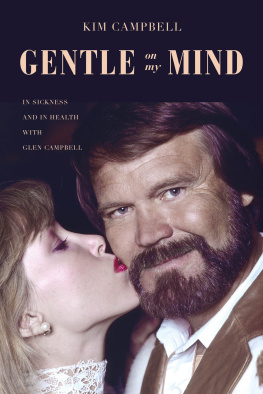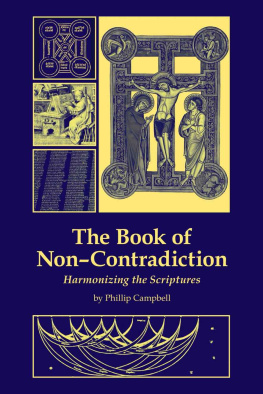The Life and Work of John C. Campbell
THE LIFE AND WORK OF
JOHN C. CAMPBELL
OLIVE DAME CAMPBELL
EDITED BY
ELIZABETH MCCUTCHEN WILLIAMS
Due to variations in the technical specifications of different electronic reading devices, some elements of this ebook may not appear as they do in the print edition. Readers are encouraged to experiment with user settings for optimum results.
Copyright 2017 by The University Press of Kentucky
Scholarly publisher for the Commonwealth,
serving Bellarmine University, Berea College, Centre College of Kentucky, Eastern Kentucky University, The Filson Historical Society, Georgetown College, Kentucky Historical Society, Kentucky State University, Morehead State University, Murray State University, Northern Kentucky University, Transylvania University, University of Kentucky, University of Louisville, and Western Kentucky University.
All rights reserved.
Copyright permission was generously given to the editor and the University Press of Kentucky by the Dame and Campbell families, which donated the unpublished biography to the Southern Historical Collection.
Editorial and Sales Offices: The University Press of Kentucky
663 South Limestone Street, Lexington, Kentucky 40508-4008
www.kentuckypress.com
Library of Congress Cataloging-in-Publication Data
Names: Campbell, Olive D. (Olive Dame), 1882-1954, author. | Williams, Elizabeth McCutchen, editor.
Title: The life and work of John C. Campbell / Olive Dame Campbell ; edited by Elizabeth McCutchen Williams.
Description: Lexington, Kentucky : University Press of Kentucky, 2017. | Includes bibliographical references and index.
Identifiers: LCCN 2016046788| ISBN 9780813168548 (hardcover : alk. paper) | ISBN 9780813168555 (pdf) | ISBN 9780813168562 (epub)
Subjects: LCSH: Campbell, John C. (John Charles), 1867-1919. | Appalachians (People)Social life and customs. | Appalachians (People)Social conditions. | Mountain lifeAppalachian Region, Southern. | Appalachian Region, SouthernSocial life and customs. | Appalachian Region, SouthernSocial conditions. | Social reformersAppalachian Region, SouthernBiography. | EducatorsAppalachian Region, SouthernBiography.
Classification: LCC F217.A65 C363 2017 | DDC 303.48/4092 [B] dc23
LC record available at https://lccn.loc.gov/2016046788
This book is printed on acid-free paper meeting the requirements of the American National Standard for Permanence in Paper for Printed Library Materials.
Manufactured in the United States of America.
| Member of the Association of
American University Presses |
This edition of John C. Campbells biography
is dedicated to those who still write letters.
Contents
Foreword
The following piece was included in the typescript copy of the biography in the Campbell Papers at the Southern Historical Collection at the University of North Carolina at Chapel Hill. It is assumed to have been written by Lois Bacon.
On her death in 1954, Olive Dame Campbell left a partly completed biography of her husband, John Charles Campbell, based for the most part on his correspondence and her diaries. Her family wished to complete a working version, reproduce it, and place copies in certain libraries so that students of the Southern Highlands could use the source material therein. Edith R. Canterbury, Mr. Campbells secretary in the last months of his life, a close friend of Mrs. Campbells thereafter, [who] was informally named literary executor, devoted herself to the manuscript. She completed the first draft, agreed on suggested revisions with the other literary executors, Louise Pitman and Lois Bacon, and had begun editing the final version when she died in 1963. For that editing, Lois Bacon had responsibility.
Mrs. Campbell was unusually well equipped to write of her husbands work in the southern mountains, for she shared in it from the time they were married, assisting in all its phases and making her own special contribution through her interest in and collection of folk ballads then still sung in the mountains, an interest that led directly to the saving of these ballads for future generations. When her husband died, she continued his work, carrying out some of his most cherished plans, notably the completion of a study in depth of the mountain people, unsentimental and unsensational, by editing his manuscript The Southern Highlander and His Homeland, which was published by the Russell Sage Foundation in 1921; an investigation of the folk schools of Denmark as a type of education which would help build up the rural sections of the mountains, by making an on-the-spot study and publishing her findings for general use in The Danish Folk School, which appeared in 1928; and establishing in 1925 the John C. Campbell Folk School in Brasstown, North Carolina, that aimed at developing individuals and inspiring a community life and social order that might be found satisfying to the young people in the mountains.
She not only established the John C. Campbell Folk School, but, as its director until 1947, she applied on a pilot basis many of the plans and ideas that Mr. Campbell had advocated for adoption by mountain schools. How his approach and hers succeeded was well expressed by the directors of the John C. Campbell Folk School after her death when they said:
We are mindful of the unique and far-reaching pioneer work of her husband, John C. Campbell in the mountain region... to which she gave her full interest and large gifts to carry on after his death in 1919. Her vision for this work was the outgrowth of his own, but her endorsement of mind, of heart, and of courage enabled her to become a creative builder and a leading spirit throughout the Highland region as well as in this School. Her vision designed the building of the School in order to build thereby better rural living. Her wisdom enabled it to develop a program for young adults, not only in the classroom but in many aspects of living. Her broad knowledge gained here and in Scandinavia gave impetus to community cooperatives and organization for sound economic growth. Her spirit set alight new thinking and new motives in young people who have come to the school year by year. She strengthened the local Church by her constant help. Her imagination and skill promoted handicraft in carving, weaving, woodworking, and iron-work which has brought satisfaction in the achievement of high artistic standards to our people, and distinction to our school. Her strength of character has carried the School through many problems and difficulties. Her generous spirit has shared with all who could use them her ideas and her experience. She built herself into the fabric of this community in a way that has spread her influence far beyond the bounds of Brasstown, and beyond the Southern Highland region.
The biography of her husband was Mrs. Campbells last tribute to him and her last service to the Southern Highlands. While recognizing that work on the biography after her death was done out of devotion to her and respect for her wishes, her family cannot but feel inexpressibly grateful to Miss Canterbury for her efforts to bring the working version to completion. In the final editing, no attempt was made to check all the documents quoted back to the originals; those that remained are now with the Southern Historical Collection of the University of North Carolina at Chapel Hill. Nor was an attempt made to eliminate all duplication and inconsistency. Rough as it is, this working version nevertheless presents in readily accessible form the fruits of Mr. Campbells long experience of mountains, his philosophy, ideals, ideas, and methods of work in seeking the goal he set himselfhelping the mountain people to help themselves to a better, fuller life. Much of it has a modern sound and could well be applied to present-day plans and programs for Appalachia and other underdeveloped areas at home and abroad.







